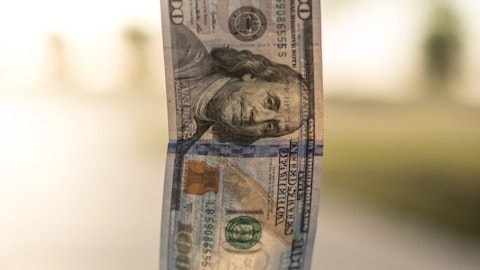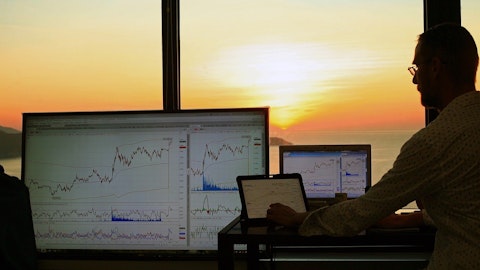Dev Kurdikar: Yes. Thank you, Mike. I’ll let Jake answer the TSA expense question for ’24. But let me broadly sort of at least frame the TSA sort of where we are in the TSA. So first of all, we’re extremely pleased with the progress that we have made so far. I’d like to remind everybody, we’re talking about taking a business that had been part of a much larger business for close to 100 years and now standing it up as a separate company. And so if you think about all the separation work that our teams accomplished including setting up the HR information system; the Suzhou demerger, which was a big project for us and where we’ve achieved important milestones; and implementations for ERP distribution networks, shared services in 60% of our markets and two of our three plants, so very pleased with all of that.
What we want to do essentially is for the remainder plant and the remainder of our markets, really phase these implementations out. That allows us to reduce the risk of operational disruption that can happen. So this is an extension that we requested from BD. BD will undertake a supplemental — a private letter ruling process with the IRS. And upon getting an acceptable ruling, we would get an extension that would allow us to do the remaining markets in two or potentially a few more phases, which would essentially take us through maybe early fiscal 2025 to get done. Let me turn it over to Jake to talk about the expenses.
Jake Elguicze: Yes, Mike. So in 2023, you’re correct, we incurred about $63 million worth of TSA expense in 2023. And then our guidance assumes, for 2024, inclusive of the — an extension being granted, that we would incur somewhere between, let’s call it, $30 million to $35 million worth of TSA expense in 2024. And obviously, the fact that we still are able to generate around that, let’s call it, the midpoint of our guidance, assumes a 30% adjusted EBITDA margin, that’s consistent with what we had expected, obviously, pre-spin. And as we said in our prepared remarks, prior to spin, we certainly did not think that we would incur nearly the amount of inflationary negative headwinds that we’ve obviously seen in the two-plus years now post-spin.
Obviously, we didn’t think that we would incur the same level of FX headwinds nor quite frankly did we originally think that we would need an extension and have to incur some additional TSA costs. So I think it really just points back to the fact that being able to still think that we can generate somewhere between that 29.5% and 30.5% adjusted EBITDA margin is really a testament to the strength and resiliency of the base business here.
Operator: There are no further questions. I’d like to turn the call over to Dev for closing remarks.
Dev Kurdikar: Before we conclude the call, I would like to express my gratitude to all my colleagues around the world for the immense amount of work that they have been doing over the past 1.5 years to stand up embecta as an independent company. And the fact that they have been doing so without impacting our customers is a testament to their commitment of fulfilling our mission of developing and providing solutions that make life better for people living with diabetes. Thank you all for attending our call and for your interest in our business.
Operator: Thank you for your participation. This does conclude the program, and you may now disconnect. Everyone, have a great day.
Follow Embecta Corp. (NASDAQ:EMBC)
Follow Embecta Corp. (NASDAQ:EMBC)
Receive real-time insider trading and news alerts



